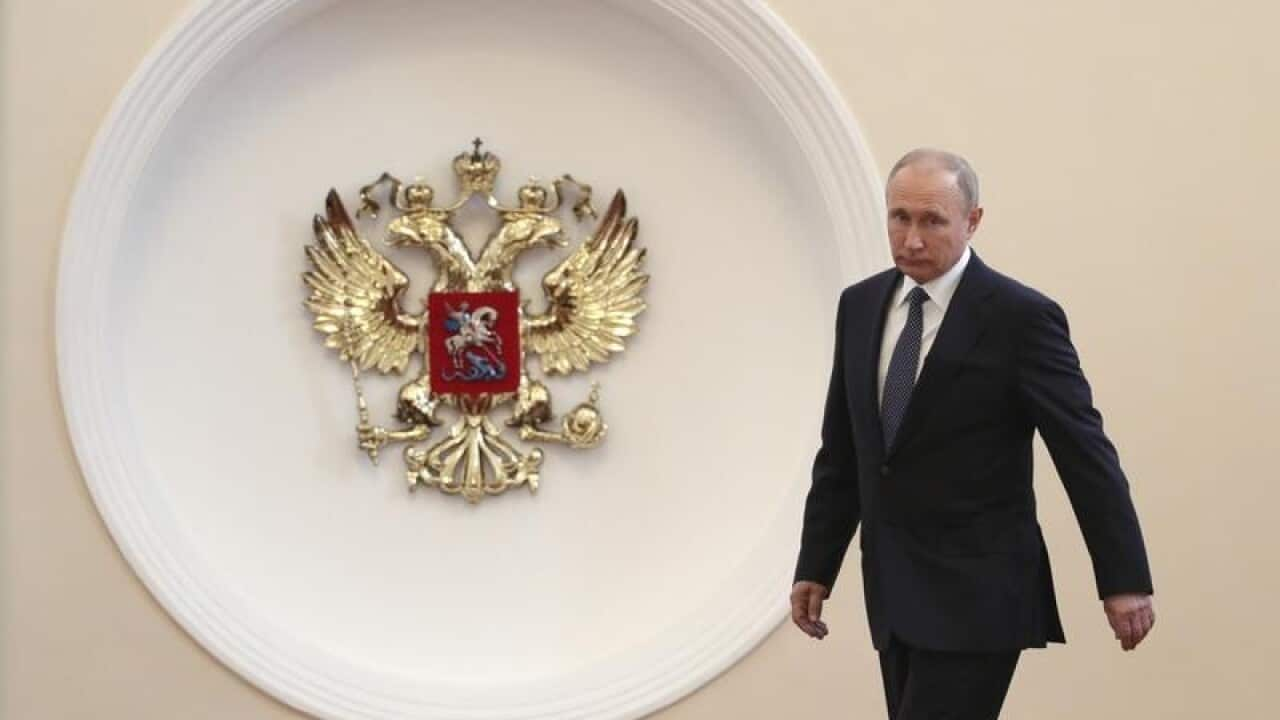Vladimir Putin was sworn in as Russia's president for a fourth term on Monday, extending his almost two-decade rule by another six years at a time of high tension with his Western rivals.
The 65-year-old, in power since 1999, is on course to become the longest-serving Russian leader since Joseph Stalin after his victory in March elections.
Putin won nearly 77 percent of the vote in polls in which his most vocal opponent, Alexei Navalny, was banned from running.
READ MORE
Putin taps Medvedev for Russian PM
He has promised to use his fourth term to revitalise the country's economy. But he also faces a host of thorny international disputes.
"I consider it my duty and my life's aim to do everything possible for Russia, for its present and for its future," Putinsaid at Monday's swearing-in ceremony, with his hand on the Russian constitution.
Several thousand guests lined the red carpet and filmed Putin on their smartphones as he arrived for the ceremony in the ornate Andreyev Hall, part of the Kremlin palace complex.
Among them were US action star Steven Seagal, who has taken Russian citizenship, as well as former German chancellor Gerhard Schroeder and Naina Yeltsina, the widow of Putin's late predecessor Boris Yeltsin.
Putin was driven to the inauguration in a black Russian-made limousine -- a change from previous ceremonies when he used a German Mercedes.
"I feel strongly conscious of my colossal responsibility," he said, thanking Russians for their "sincere support" and "cohesiveness".
"We have revived pride in our fatherland," Putin said. "As head of state I will do all I can to multiply the strength, prosperity and fame of Russia."
Shortly after the ceremony, Putin asked parliament to back a new mandate for outgoing prime minister Dmitry Medvedev, his longtime ally.
Crackdown on opposition
Navalny on Monday reposted a 2017 video into the prime minister's alleged wealth that led to nationwide protests last year.
On Saturday nearly 1,600 protesters including Navalny were detained during nationwide rallies against Putin under the slogan "Not Our Tsar".
The opposition figure, who was barred from challenging Putin in the March election, has been released pending a court hearing.
The unrest revived memories of 2012, when authorities cracked down on rallies against Putin's return to the Kremlin after a stint as prime minister.
Strained ties with West
Russia's ties with the West have been strained by Putin's annexation of Crimea from Ukraine and his military campaign in Syria in support of longtime Russian ally President Bashar al-Assad.
In recent months relations have soured further over accusations of the poisoning of an ex-spy in Britain and of election meddling in the United States.
"For Putin any concession is a sign of weakness, so there shouldn't be any expectation of a change in foreign policy," said Konstantin Kalachev, the head of the Political Expert Group think tank in Moscow.
The constitution bars Putin from running again when his fourth term ends in 2024. But he has remained silent on the issue of his succession.
Economic woes
Putin has promised to use his fourth term to improve Russians' standard of living.
"People will live better," he said.
Hours after the inauguration ceremony, Putin issued a decree setting targets for his next six years in power. These included halving Russia's poverty rate, increasing pensions and boosting the average life expectancy to 78 by 2024.
A new poll by Russia's independent Levada Center found that while the majority of Russians support Putin's foreign policy, the main complaints are over the economy. The survey showed 45 percent of Russians believe Putin has been unable to achieve a "fair distribution" of state revenues to benefit ordinary people.
The survey showed 45 percent of Russians believe Putin has been unable to achieve a "fair distribution" of state revenues to benefit ordinary people.

Russian President Vladimir Putin attends a thanksgiving prayer service held on the occasion of Putin's inauguration. Source: Getty Images
Russian businesses are expecting wide-ranging reforms to the government's heavily bureaucratised system.
According to statistics published in the RBC newspaper on Monday, the number of bureaucrats during Putin's third term rose by 50 percent, from 1.57 million to 2.17 million.
Putin has struggled to revive an economy that was hit hard by the Western sanctions over Crimea and a fall in global oil prices.









